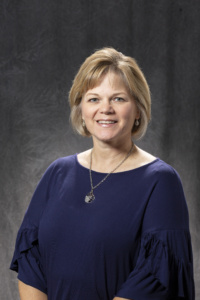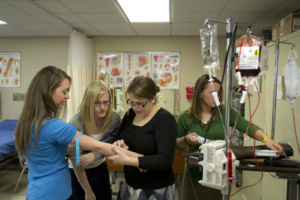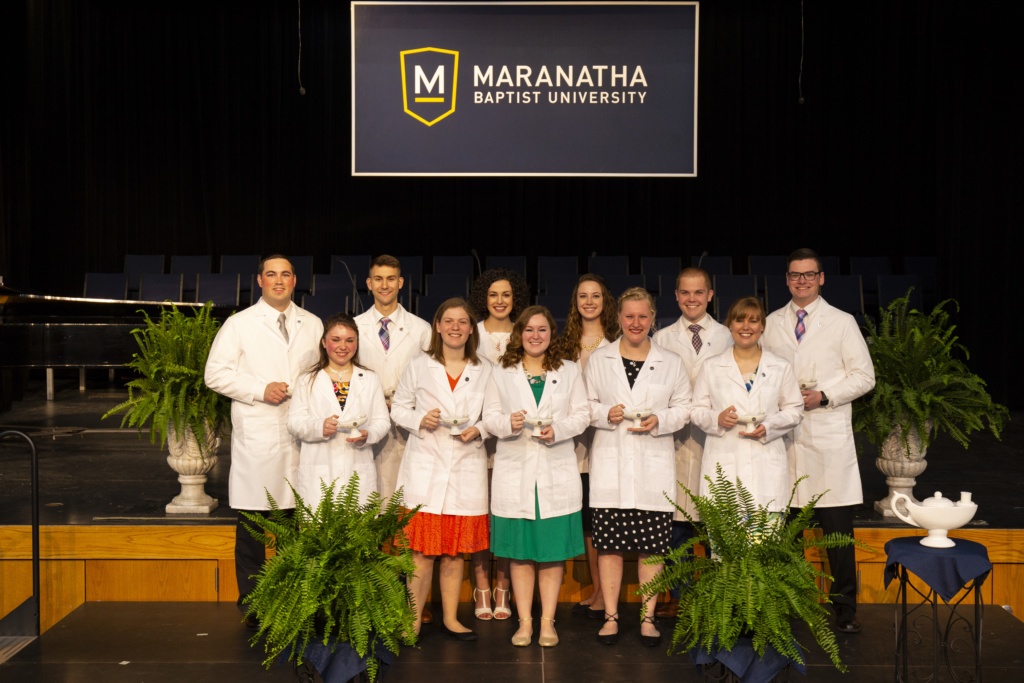100% NCLEX Pass Rate for 2019 Nursing Graduates
A nursing major’s entire education is spent in preparation for one exam: the NCLEX. This exam is designed to test a student’s attentiveness, determination, and commitment in order to become a nurse. No doubt, the NCLEX is one of the biggest challenges a nursing major will face. Even so, MBU’s 2019 nursing graduates met the challenge with confidence and achieved an incredible 100% NCLEX pass rate. Susan Rasmussen,  the Nursing Program Director, gives us a closer look at what the NCLEX is and how it impacts the students as they prepare for the future.
the Nursing Program Director, gives us a closer look at what the NCLEX is and how it impacts the students as they prepare for the future.
What is the NCLEX?
The NCLEX is a national examination that all graduates of any registered nursing program must take in order to obtain licensure. The purpose of the NCLEX is to make sure the brand-new graduate knows enough to practice safely in any environment. For a class to accomplish it the first time at 100% is pretty remarkable.
What does it take to pass the NCLEX?
The NCLEX demands a lot from the students. Academically, students go through multiple courses that teach them how to take this type of test. Every nursing student actually takes an NCLEX prep course their final semester that catapults them into the test based on the material and test-taking skills they learned.
Mentally, it’s a major challenge. We encourage students to map the directions out to the test site, organize what they need the night before, and even arrive to the site an hour early. Once the students answer a question on the test, we encourage them to put that one aside and move on without thinking about the previous one. Their focus is on staying committed to an answer without faltering mentally.
Spiritually, we do a lot of praying. All the faculty members find out when each student will take the test so we can send them a text letting them know we are thinking of them and praying for them.
How do MBU nursing graduates have advantages over nursing graduates from non-Christian institutions?
Because we focus so much on the Biblical worldview, we help our students learn how to filter everything through God’s word. We want our students to be prepared to apply God’s word to any situation rather than what they may think or feel. We emphasize the fact that it’s not just about us, it’s not about our decisions or our thinking, but it’s about what God says. Healthcare involves a lot of ethical choices. Our students are so much more prepared to handle life and those questions that will come.
What makes the MBU Nursing program successful?
This program is God’s program. He has truly blessed us with wonderful faculty who desire to help every student through the entire process of becoming a nurse and developing a Biblical worldview to handle life after school.
What are some challenges that nursing students must overcome?
 First of all, it’s a mental game. They must realize that everything they have learned will help them answer the questions on the test. It’s also understanding that if God has called them to do this, He will guide them. No matter if they pass or fail, God always has something to teach us from the results.
First of all, it’s a mental game. They must realize that everything they have learned will help them answer the questions on the test. It’s also understanding that if God has called them to do this, He will guide them. No matter if they pass or fail, God always has something to teach us from the results.
What is the core value that you want students to take into the workplace?
We need to pattern ourselves after Christ’s compassion. Every single human being is made in the image of God. As nurses, we need to see people the way Jesus saw people. This requires meeting not only their physical needs, but also their spiritual needs if possible.
How have you seen MBU nursing graduates excel in their careers?
To us, nursing is only a tool to do God’s work wherever He sends us. Graduates will come back and tell us they are better prepared for nursing than other students they are working with. Not only are they better prepared for nursing, but they are better prepared for life in general. Our 11 graduates this past year have secured jobs in a variety of areas such as the medical surgical nursing floor, the cancer research center at UW Madison, Gynecology and women’s health, and a national internship in critical care.


